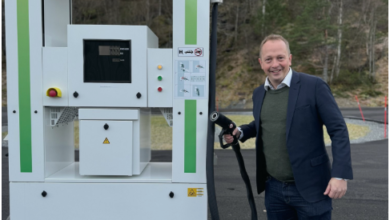Cummins starts testing hydrogen-powered internal combustion engine
Cummins is investing in a range of technologies to support hydrogen-based transportation, including hydrogen engines, fuel cells, electrolysers and storage tanks.

Cummins Inc. (An American multinational company that specialises in diesel and alternative fuel engines and generators, and related technology) has started testing a hydrogen-fuelled internal combustion engine.
The proof-of-concept test is building on the company existing technology used in gaseous-fuel applications and powertrain. With the hydrogen-powered fuel engine, the company wants to create new power solutions that help customers meet the energy and environmental needs of the future. It plans to assess the engine in a variety of on- and off-highway applications.
The high energy density of hydrogen enables integrated onboard gas storage without compromising either the vehicle payload or operating range. Cummins has a joint venture with Nproxx, a hydrogen storage specialist, to integrate the fuel cell or hydrogen engine with the high-pressure gas cylinder tanks and supply lines on the vehicle.
Cummins is using a new engine platform using the latest technologies to improve power density, reduce friction and improve thermal efficiency to avoid the typical performance limitations and efficiency compromises associated with converting diesel or natural gas engines over to hydrogen fuel. The hydrogen engines can use green hydrogen fuel, produced by Cummins-manufactured electrolysers, emitting near-zero-emissions. Cummins also has experience in installing more than 600 electrolysers globally.
Srikanth Padmanabhan, President of the Engine Segment, said, “Cummins is thrilled about the potential of the hydrogen engine to reduce emissions and provide power and performance for customers.”
Jonathon White, VP of Engine Business Engineering, said, “The hydrogen engine program can potentially expand the technology options available to achieve a more sustainable transport sector, complementing our capabilities in hydrogen fuel cell, battery electric and renewable natural gas powertrains.”
